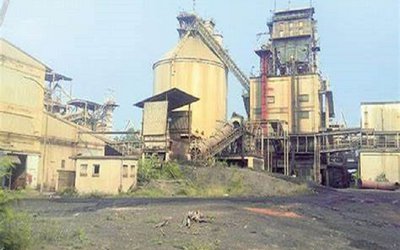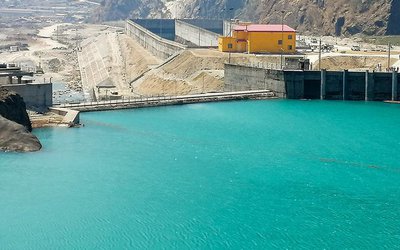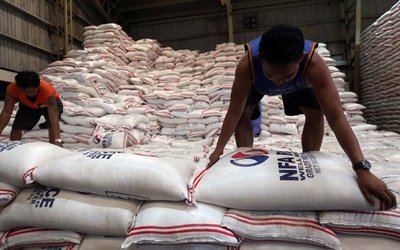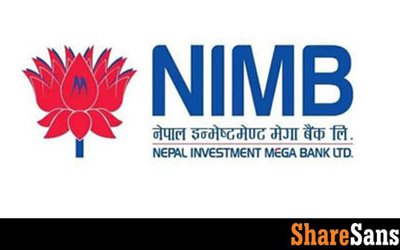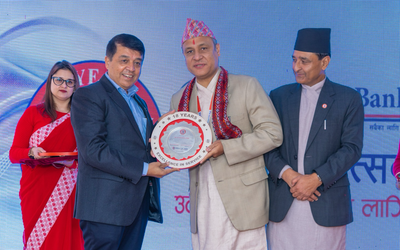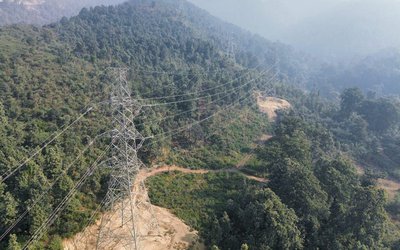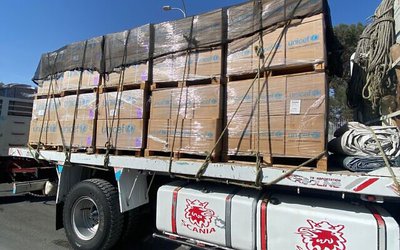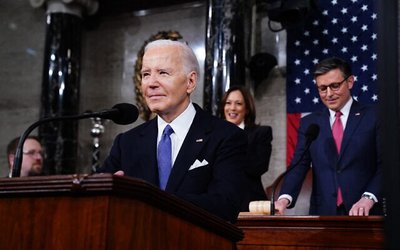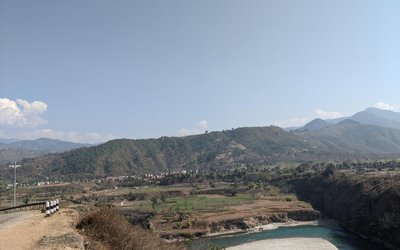
Aspiring to improve its status as a middle income country, Nepal has been focusing efforts to improve infrastructure and investment. However, Nepal's poor performance in implementation and completion of projects will be likely to have effect.
In a recent Portfolio Review Meeting of Asian Development Bank supported projects what one can see is that Nepal needs to go a long way to improve the overall project management capacity including in contract awards and implementation.
Compared to previous years, Nepal has made a record progress in disbursement in 2019 in Asian Development Bank's projects exceeding over $ 300 million. However, contract award and real disbursement remained poor.
“While we made a great achievement exceeding the disbursement of over $300 million, the disbursement ratio did not improve, and, in fact, decreased due to the new loan commitments added to the portfolio in 2019,” said ADB Country Director for Nepal Mukhtor Khamudkhanov in the Country Portfolio Review Meeting jointly organized by ADB and the Ministry of Finance.
Despite crossing the mark, Nepal’s portfolio was lagging behind most other countries in South Asia in terms of disbursement ratio,
“The disbursement needs to substantially increase, to be close to $400 million per year for ADB to consider further increasing or even maintaining ADB’s commitment level,” he said.
At the moment, 61 per cent of the total portfolio – $2.9 billion - remains undisbursed, which was very high. The multilateral donor has disbursed US$323.7 million for development projects in Nepal in 2019.
It is the record disbursement with 76.5 per cent against the annual target of $423.2 million, said the multilateral donor. Likewise, of the $381 million awards, only $256 could be awarded last year, said Rudi Van Dael, Unit of Portfolio Management of the ADB Nepal Resident Mission.
However, ADB’s support to Nepal in the infrastructure sector has increased in the recent years with larger but fewer projects. Difficult terrain and remoteness of project sites, addressing safeguard issues, and the country’s ongoing transition to federalism that takes time have also posed challenges to the effective implementation of development programs, said Khamudkhanov.
According to him, strengthening the teamwork, ensuring sufficient human resources, inter-agency coordination, timely reporting and continuous capacity enhancement are needed to address the poor project performance.
Secretary at the MoF Sishir Kumar Dhungana said that since the results were significantly lower, the ADB and the government needed to reassess their own targets.
He said that there was a need to accelerate the progress and the high level project coordination mechanisms and the MoF and Prime Minister’s Office could help in it. “The shortage of human resource was created due to the readjustment of the civil servants in federal structure. The government is committed to filling the gap of qualified human resource,” said Dhungana.
He also said that the development projects were suffering from the weaker capacity of contractors and consultants.
The ADB portfolio in Nepal has reached $2.9 billion by 2019 with urban and water sector receiving the highest share of $900 million or 31 per cent. Energy covers 19 per cent, transport 23 per cent, education 16 per cent and agriculture and natural resource 8 per cent.
The Asian Development Bank (ADB) achieved a record disbursement of $323.7 million for development projects in Nepal in 2019. Some of the projects contributing to the record disbursement of 2019 include the Earthquake Emergency Assistance Project ($38.5 million), the South Asia Sub regional Economic Cooperation (SASEC) Power System Expansion Project ($28.7 million), Food Safety and Agriculture Commercialization Program ($25 million), Regional Urban Development Project ($22.1 million), Rural Connectivity Improvement Project ($20.2 million), and Supporting School Sector Development Program ($20 million).
“ADB’s support to the Government of Nepal in the infrastructure sector has increased in the recent years with larger but fewer projects,” said ADB Country Director for Nepal Mukhtor Khamudkhanov, speaking at a country portfolio review meeting jointly organized by ADB and the Ministry of Finance.“But while disbursement has picked up pace, challenges remain and the overall performance of ADB operations in Nepal could be much better.”
Khamudkhanov added, "For better and quicker results on the ground, higher lending needs to be matched with improved implementation and enhanced technical capacity of implementing agencies.
“We appreciate the consistent efforts by the Ministry of Finance to progressively address risks and constraints through regular country and tripartite portfolio review meetings, with active participation of line ministries and relevant agencies.”
Excellent Award
Finance Secretary Sishir Kumar Dhungana presented awards to ADB-supported projects that showed excellent results in 2019.
The Third Small Towns Water Supply and Sanitation Sector Project and Community Managed Irrigated Agriculture Sector (Additional Financing) won the outstanding project management teams awards. The Urban Water Supply and Sanitation Sector Project was awarded the best team for procurement management prize.
The SASEC Power System Expansion Project received the best team award in the categories of environmental and social safeguard monitoring; the Third Small Towns Water Supply and Sanitation Sector Project won the gender equality and social inclusion award; and the SASEC Road Connectivity Project bagged the financial management and disbursement accolade.
“These awards recognize the project teams' excellence not only in effective project management which helped save time and prevent cost overruns, but also prioritize gender equality and social inclusion, as well as environmental sustainability and social safeguards,” said Khamudkhanov.
Although secretaries, heads of the project expressed their commitments to expedite the current weakness and improve the performance in next review meeting, whether they will come out with much better results in coming meeting is yet to see. For Nepal's overall development, low disbursement means lost opportunity.
- FM DR.RANA INDIA VISIT: Strengthening Relations
- Jan 02, 2025
- BUTWAL-HETAUDA Connected By 220 kV
- Jan 02, 2025
- PM OLI' CHINA VISIT: A Success For Business
- Jan 01, 2025
- ISRAELI AMBASSADOR SPEAKS: Israel For All Possible Support To Nepal
- Jan 01, 2025
- NEPAL-INDIA ENERGY TRDE: A Silver Lining For Nepal
- Dec 31, 2024
